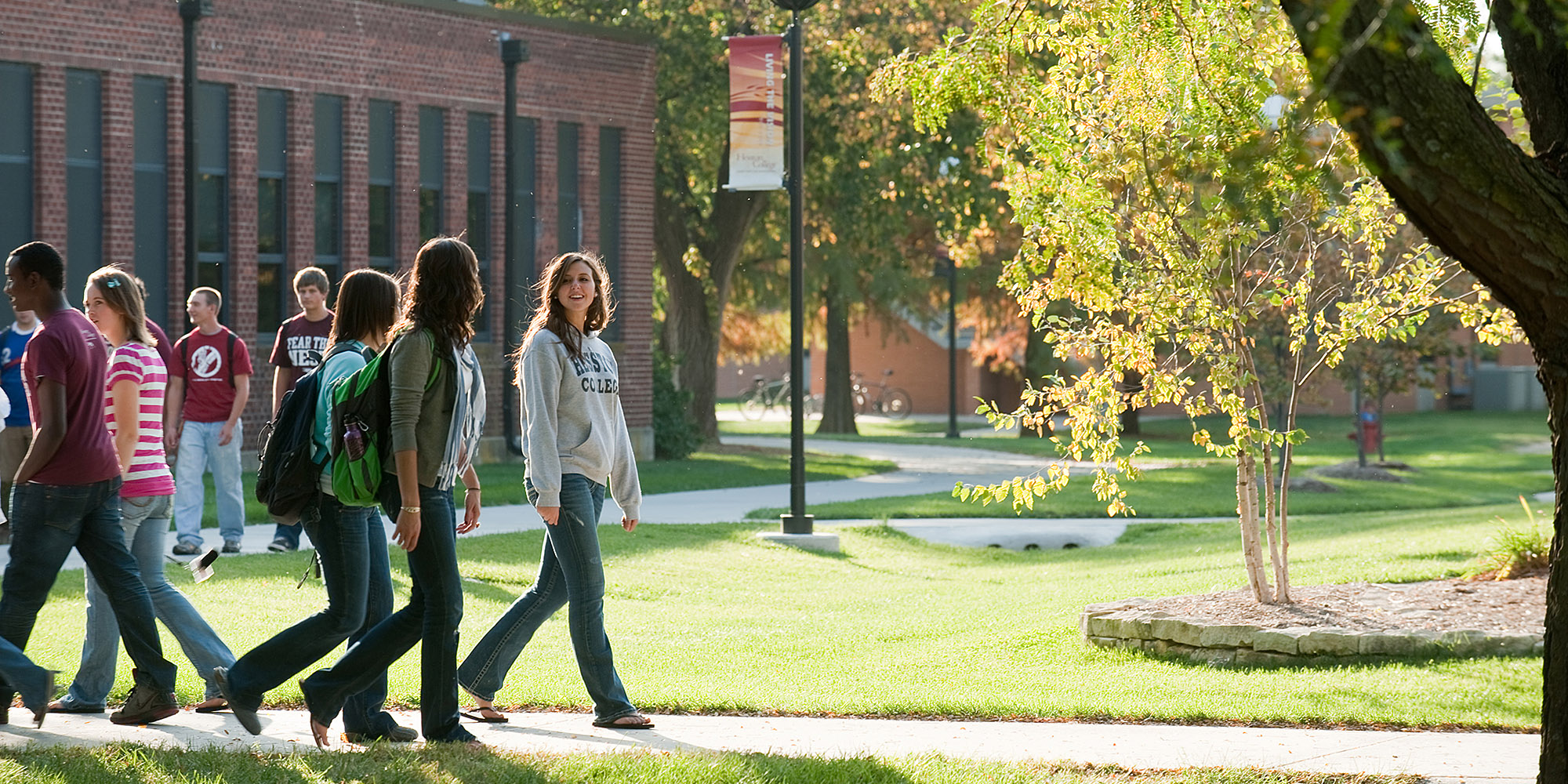The college application process is hard, but sometimes the decision process can be even harder! While it’s nice to know you’ve been accepted to a few of your top schools, it can also put a lot of pressure on you when making your decision. If you’re having a tough time deciding which college to attend in the fall, take a look at these tips from collegiettes who went through the same decision. Consider these factors when trying to make your big decision!
1. Think about what is most important to you
When you have a big decision to make, it’s important to step back for a moment and assess the situation. Think back to when you were applying to schools and why you chose the ones you did. Consider what was most important to you when you were applying, whether it was campus size, majors offered or distance from home. Thinking back to why you applied to these colleges in the first place will help remind you which aspects of a school are most important to you. Consider making a list of everything you want in a school (a big campus, Greek life, small class sizes, etc.) and think about how each of the schools sizes up.
2. Visit the school
A good way to narrow down schools duringyour decision process is to visit each school and really gather an idea of what it would be like to spend your time there.
When Meghan Gibbons, a senior at Boston College, was trying to decide between her two top colleges, she paid each of the schools a visit. “This time I was thinking of myself as a student and whether or not I could live there for four years,” Meghan says. “After visiting one of the schools, I felt like I fit in perfectly, [and I] saw and met current students I could see being friends with and would want as my classmates.”
While a daytime visit will probably be helpful, an overnight stay will be an even better way to help you decide between schools. Allison Gail, a senior at John Carroll University, says that doing overnight visits made a huge difference when she was trying to narrow down her decision. “I think it's the only way to really get a feel for the people and the culture of the campus,” Allison says. “For example, at one school, no one helped me when I was lost, but at the other school, when I stopped to look at a map, four people came up to me and one of them walked me to where I needed to go!”
Experiencing the atmosphere and interacting with students will make it much easier for you to figure out where you want to spend the next four years. Eat lunch in the cafeteria, sit in on a class or maybe even join current students on the quad in order to get a feel of what it would really be like to be a student there. Look at the school’s admissions website or give the office a call to find out when they offer tours and if it would be possible to stay there overnight!
3. Think about distance and location
Two of the biggest factors for most students when choosing a college are location and distance from home. Some students like to stay close by so they can visit friends and family, and others like a fresh start in an entirely new environment. Some like big campuses in small towns, and others would prefer a big city to be their campus!
Kelsey Pomeroy, a sophomore at Ohio State University, says, “Originally, I chose my freshman-year college because it was in a big city, which I loved, but I didn't factor in the travel expenses required for going to a school 13 hours away! When I transferred, I made sure to pick a school that was closer to home, but still in a city. “
Make sure you know what type of campus you want, where you’d like the school to be and how far from home you’d like to be before you make any big decisions. Though you may be more focused on the schools themselves, the environment a school is in and how far it is from home will still affect your experience there! Look into what’s involved at each school you could attend – like travel costs, public transportation (if it’s in a city) or whether or not you’ll need to bring a car.
4. Consider the curriculum and your career
While college is certainly more than just academics, classes are still arguably the most important part of the experience; that’s why you’re going to college in the first place! Don’t let other factors constantly override the school’s educational side.
Chelsea Bast, a junior pharmacy student at the University of Connecticut, was stuck between UConn and the University of Rhode Island. While she was given enough scholarship offers that the two schools would be the same price, she wasn’t accepted into URI’s pharmacy school. “I decided to follow my career at UConn instead of URI because of the lack of career options for me at URI,” Chelsea says. “I would advise that high school students think clearly about their career options before choosing a school—if I had gone to URI, I wouldn't have been able to pursue the career that as a senior in high school I knew that I wanted!”
The goal of going to college is to get a degree, so it’s important that your college will provide an education you want and respect. Consider whether the colleges have your major and if they have a good reputation for small, hands-on classes. Think about what sort of general education and major requirements you’ll have to fulfill. While you may be occupied with thoughts about Greek life and hanging out on the quad, remember that academics are important, too!
5. Consider how far away you want to be from your friends and family
While proximity to your friends and family is an important factor to consider, don’t let it be the only factor that affects your decision. It’s tempting to follow your high school friends to college, but remember that college is a good time for a fresh start—not that that means you have to lose touch with your old friends!
When Cassidy Hopkins, a sophomore at Emerson College, was deciding between two schools, she had the hard task of rejecting the school that her best friend would be attending. While she liked the reputation of the University of Missouri’s journalism department and she wanted to be with her friend, she ended up choosing Emerson College for its location and small size.
“I think it's important not to be afraid of picking somewhere because you don't want to be away from your friends,” Cassidy says. “College is about meeting new people and having new experiences. While I'm sure it's great to have your best friend go to the same school as you, make sure you’re not just picking that school because your friend is going or wants to go there too!”
6. Ask yourself where you’ll get the best experience
Think about what you consider to be the typical “college experience.” If you imagine football games and campus traditions, steer clear of small schools that have little athletic spirit or sense of community. “While still considering any financial aid/credit transfer offers you receive, [you should] go with the school that will allow you to make the most of your college experience,” says Kate Dwyer, a freshman at Johns Hopkins University.
The atmosphere and experience of a college is perhaps the most important thing you could consider, and it can vary a lot from school to school. A state school with a large campus will have a very different and probably more traditional feel than a small city school with no defined campus. Think about what each school’s atmosphere is like, what types of students go there and what unique opportunities they offer. All of this will help make up the overall feel and atmosphere of the school, which can really affect your time there. Choose the college that will let you make the most of the next four years—the one you personally think you’ll get the most out of.
If all else fails, make a good, old-fashioned pros-and-cons list for each school. Mapping out what you like and dislike about each school will make it easier to see if one outweighs the other.
The deadline is quickly approaching and it’s almost time to make your final decision! Use the time you have left to really break down the schools you’re deciding between and decide what you need from your college experience. It’s a big decision, so think hard and make sure it’s the right one!






